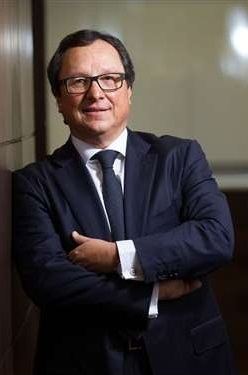How would you define your firm’s culture? How important is firm culture to you?
Our firm’s culture is based on (i) collaboration and respect in order to offer the best possible multidisciplinary service in the market; (ii) helping our clients to make business happen and to make better business decisions; and (iii) assuring the best and constant development of our members, clients, and that of our society.
What’s the main change you’ve made in the firm that will benefit clients?
The institutionalisation process of our firm to assure that our clients receive advice from the most qualified and specialised professionals within the firm. More recently, in the past year we created a new area in the firm responsible for innovation and within its responsibilities, this area has established a project management process to achieve a more efficient service for our clients.
What does innovation mean to you and how can firms be better at it?
For us, innovation is any new procedure, process or structure developed by our teams to implement a transaction or to develop a product in order to provide a better and more efficient service to our clients. In this respect, technology becomes a tool, however, creating a culture within the firm that results in trained lawyers incentivised to innovate is even more important.
Is technology changing the way you interact with your clients, and the services you can provide them?
It is starting to impact for purposes of cybersecurity (financial sector) and payment processes; but it will accelerate its impact in the years to come. We therefore need to create a more technological environment to create and incentivise a culture that focus more on innovation and technology.
What are the biggest challenges facing firms of your size in Mexico?
Becoming more institutionalised and consequently more strategical ready to adapt to the new challenges our market is presenting and avoiding internal competition.
What are the top things most clients want and why?
- More knowledge of their business and closer collaboration with their GCs;
- Lawyers that resolve problems, but not only legal problems;
- More creativity on fee arrangements;
- Innovation
What have you found is the best way to retain talent – both at partner and associate levels?
Assuring that our talent is convinced that the firm: (i) is committed to their professional and personal development; (ii) assigns responsibilities to our associates; and (iii) provides them the opportunity of working in projects that have a certain purpose aligned with their motivations.
The foregoing is supported by having a career plan, through constant feedback and by establishing coaching and training programmes aimed to develop their professional and soft skills.
Organisations like ours need to create the platform that will allow people to develop themselves at their maximum level and thereby permitting them to make better and larger contributions to the firm, our clients, and our country.
Since becoming managing partner what’s surprised you most about running a firm?
The challenge of being a good leader by learning to better listening and communicating to our partners and teams; as well as convincing partners to look to their firm as a business and act accordingly.
How has your role/involvement in client-facing work changed since becoming managing partner?
The compensation committee has set forth my objectives which relate more to institutionalising the clients’ relationship, focus on strategy, and on positioning the firm in the international markets, as well as participating together with other partners in those transactions where my participation could contribute some value.
Clients understand that my partners will be the ones performing the work and that my role is more strategic but that I will intervene as requested and needed.
What advice would you give to the next generation of partners ready to rise the ranks?
Devote 10% of your time to learning about your client’s business and to develop a closer relationship; get the support of the firm’s BD area and share your information with those areas; support the leaders of the firm and become one of them in due course.
Do your job with passion and enjoyment; protect and live our values and culture; develop the capability of listening to our partners; assure that we hire people based on their potential; and continue focusing on the development of both professional and soft skills of the firm’s members.
Finally, trust our business model and measure performance.
What are your firm’s policies on diversity and inclusion?
The creation and implementation of a sustainability plan is a fundamental part of the process of institutionalisation of our law firm. Currently our main axes of social responsibility are diversity and inclusion policies, individual participations with the community, a pro bono programme, teaching, collaborations in forums, inclusion policies, and good working conditions, among others.
In order to achieve this goal, we are now in the process of integrating our projects into a single platform that allows us to position ourselves nationally and internationally, strengthen a culture of global social responsibility and, by the end of this year, join the UN Global Compact.
